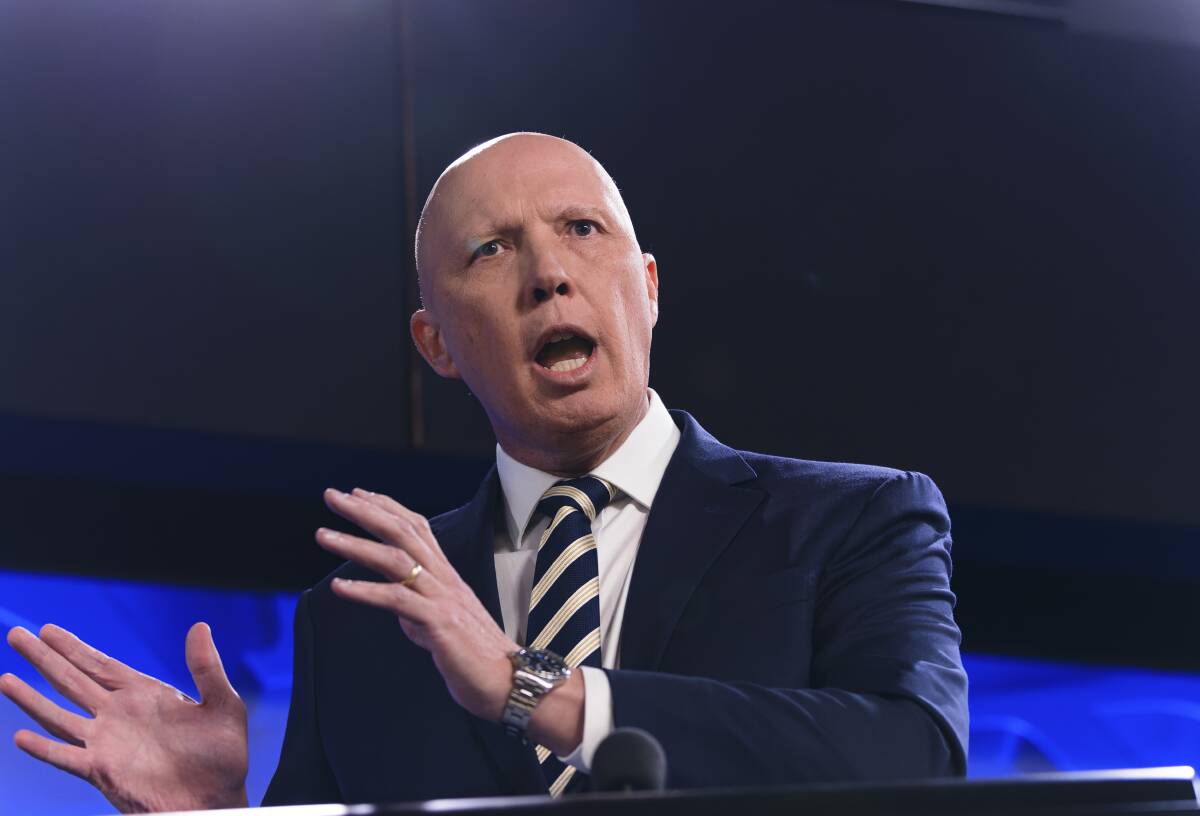
As they bask in the afterglow of their narrow 2022 election victory, and begin to implement a significant change of direction and pace in several critical policy areas, the new Australian government should pause and reflect on what sort of opposition they will face in the Parliament.
It will not be smooth sailing. Australia post-COVID will enter a volatile era, domestically and internationally. Sudden storms from multiple directions are likely to crash frequently upon the Australian ship of state. Waiting in the fog of politics nearby will be a new disciplined opposition, ready to add to the chaos by taking advantage of every policy slip-up. That is the role of the opposition - to hold the government to account.
This is undoubtedly what Anthony Albanese did very successfully during the last term of parliament.
The most recent Liberal opposition leader, Tony Abbott (2009-13), followed a similar, but even more effective, strategy. In his book, The Insiders (2020), Christopher Pyne explains: "Abbott was an effective opposition leader. In less than a year, he demolished Rudd; he drove the Gillard government into minority; and defeated the second Rudd government. Over two elections Abbott gained 25 seats from the incumbent. Given where the Liberals were in 2007, it was a remarkable achievement."
I think Peter Dutton will be an even more effective opposition leader than Tony Abbott, a view also held by the parliamentary Liberal Party, which has just unanimously elected him to the position. Like Abbott before him, they see Dutton as their ticket back to government in the shortest possible time. When Dutton last ran for the leadership in August 2018, it proved to be highly contentious, as he attempted to unseat prime minister Malcolm Turnbull . . . twice in one week. He came very close to succeeding.
Dutton was supported in this move by The Monash Forum, a conservative ministerial ginger group within the Liberal Party led by him. It contained the powerful three As (Abbott, Abetz and Andrews), all former cabinet ministers who masterminded Dutton's tilt at the leadership against Turnbull. He lost the final party room ballot to Morrison 40-45.
In 2022, Dutton is in a much stronger position, because the teals wiped out the cream of the Liberal moderate faction, including some of the brightest and most talented MPs in the parliament, such as treasurer Josh Frydenberg. With his loss went the hope of the Liberal party returning to moderate leadership any time soon. The Liberal Party's centre of gravity will now move further to the right, making it a more united opposition under strong leadership.
What will make Dutton an effective Opposition Leader? What does he bring to the job? Before entering politics as the MP for Dickson in 2001, aged 30, Dutton was a policeman and ran a construction business with his father. He has a laconic and self-deprecating Queenslander disposition. This has made "Dutts", as he is affectionately known, liked and well respected by most Coalition MPs.
Both John and Janette Howard took a shine to Dutton early in his political career, and he served in the outer ministry in the last term of that government between 2004 and 2007. The "hard" man image that has become his public persona has arisen mainly from his role as a senior cabinet minister in some of the most challenging portfolios.
Upon the Coalition's return to power in 2013, he was handed, in turn, the challenging senior cabinet portfolios of health, immigration and border protection, home affairs, and, more recently, defence and leader of the house. For many years, he played a crucial role in Operation Sovereign Borders, which didn't endear him to the left of Australian political spectrum.
As Leader of the Opposition, Dutton has a chance to fashion a softer and more rounded image, as he will be required to cover all areas of government. We have recently seen more of Peter Dutton, the family man, as the image-makers refashion his public persona.
The new Opposition Leader has also signalled he will reposition the Liberal Party. Dutton recently declared: "we are not conservatives or moderates; we are all Liberals." The challenge here will be to draw on the core values of liberalism as practised by his predecessors, Menzies and Deakin.
Echoing Menzies, the new Liberal Leader said this week: "our policies will be squarely aimed at the 'forgotten' Australians in the suburbs, across regional Australia, the families, and small businesses whose lot the ALP would've made more difficult." With this template, and the unanimous endorsement of his parliamentary party colleagues, Dutton has made a good start.
Considering the current precarious position in the Federal Parliament, where the ALP has a majority of one and a primary vote under 32 per cent, Peter Dutton's opportunity to lead the nation might come sooner rather than later, particularly as the Parliament has a large and unpredictable crossbench.







